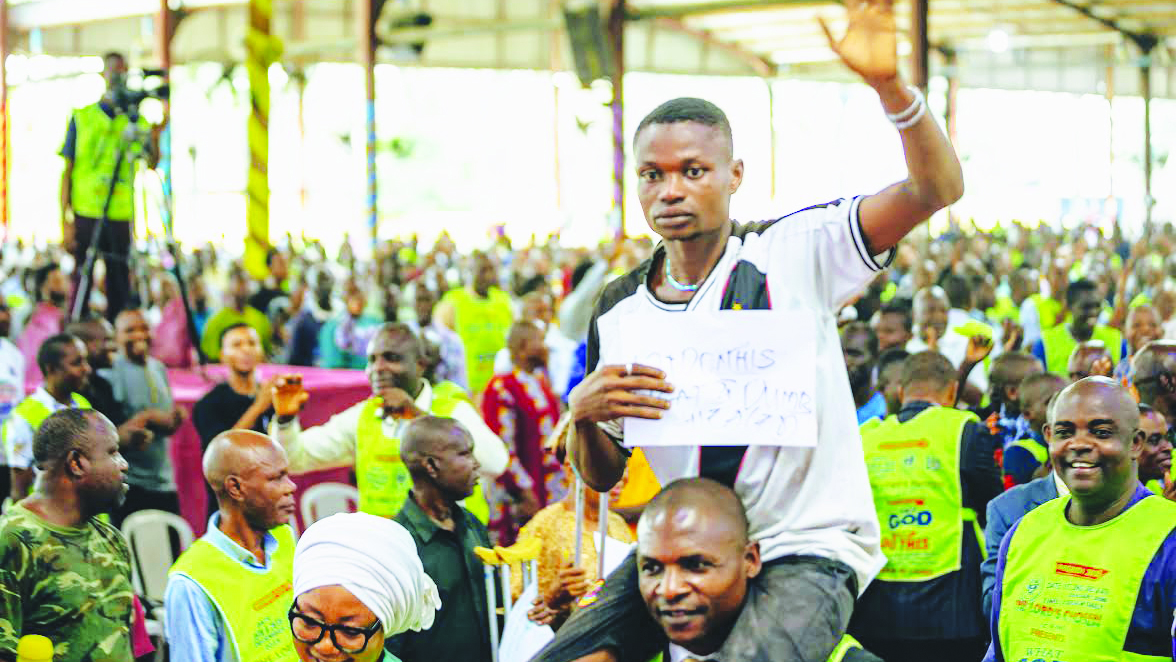
The Lokoja Diocese of Anglican Communion came together to celebrate, not just 154 years of Christianity in the area, but most importantly their togetherness as a Diocese. To them, it was 25 years of God’s faithfulness and being united.
The history of the Diocese of Lokoja Church of Nigeria would not be complete without making references to the missionary works of Bishop Samuel Ajayi Crowther, who came to Gbobe as a member of the 1857 Missionary Expedition and made the community a temporary Mission headquarters, from where they explored the hinterland to Nupeland and later Wusasa and Kano environs.
The Guardian investigation revealed that Bishop Crowther built a mud Church in Gbobe community in 1857, where on September 14, 1862, he baptised eight adults and one infant —the first baptism performed in the entire Northern Nigeria. He later relocated to Lokoja, where he established the Holy Trinity Church now the Cathedral Church of Holy Trinity, Lokoja and See of the Diocese of Lokoja in 1865.
It was equally gathered that in the 1960s, when the idea of a second Anglican Diocese in the North was mooted, the choice of a headquarters for such a diocese was between llorin and Lokoja. However, despite this long-standing history, Lokoja did not become a diocese until after 129 years, when on October 18, 1994 the Diocese of Lokoja was created with The Rt. Rev. and Mrs. George Bako (OON) as the pioneer Bishop.
At its inauguration, the diocese was said to comprise Lokoja, Okene, Ogori/Magongo, Ihima, Okengwe, and Bassa Archdeaconries. Twenty years after, four dioceses were carved out of it. They are: Diocese of Idah (inaugurated in 2005); Diocese of Okene (inaugurated in 2007); Diocese of ljumu (inaugurated in 2007), and the Diocese of Ogori/Magongo (inaugurated in 2012).
A senior church member told The Guardian that the diocese started with a house, which was used by CMS missionaries and Archdeacons but today, has built a befitting Bishop’s Court (Bethany), a Diocesan Secretariat, the Good Shepherd Anglican Academy (GSAA), Lokoja as well as economic empowerment initiatives through Eden Greenfields Nig. Ltd, Heritage Bookshop and a printing press.
So, it was not surprising that the Diocesan and the entire congregation rolled out the drums to celebrate 25 years of oneness and God’s faithfulness.
On October 16, 2019, the youths came together to review the roles in the diocese and fashion out their prospects in the next 25 years. The Bishop of Kabba Diocese, Rt. Revd. Stephen Akobe, who was the guest speaker at the youth summit, charged the participants to take the lead in all activities of their parishes and indeed the diocese.
He said they should make church activities suit the present dynamism, rather than running away from the church. He said what was important was not Anglicanism, but the Bible and urged them to come up with innovative ideas that would enhance and edify Christ in the church.
The Bishop of Lokoja Diocese, Most Revd. Emmanuel Egbunu urged the youths to be steadfast in the service of God. He noted that the diocese had always afforded youths a place of honour, adding that they would continually be given opportunities to express themselves in the church.
On Thursday 17, the diocese embarked on a colourful street carnival, with each group adorning cultural attires of ethnic nationalities. They displayed Gbagi, Yoruba, Igbo, Nupe, Egbira, Niger Delta and Ogori cultural dances. The carnival, which started at NTA Lokoja, went through Fen junction and terminated at the See of the diocese, the Cathedral Church of Holy Trinity.
Speaking on the anniversary lecture titled: ‘The Role of Anglican Mission in the restoration of quality education in an increasingly secular society,’ Professor Olugbemiro Jegede lamented that the decline of the education sector in Nigeria started with the takeover of mission schools by government. He argued that for the sector to be restored, the church must play a critical role. He advised the diocese to ensure that each archdeaconry has, at least, one educational institution.
As part of activities marking the event, 25 distinguished personalities were presented with various awards.
Another highlight was the dedication of the Gbobe Retreat Centre. It was built in the community, where missionary activities started in Northern Nigeria.
The guest speaker at the thanksgiving service called on the congregation to lay more emphasis on God and humanity. He commended the Diocese leadership for being at the vanguard of preaching the gospel and encouraged it to do more.
In his address, Most Revd Egbunu attributed everything to God’s faithfulness and members’ commitment through the years.
He said: “We are particularly glad that the history has not been lost on us. The first mission station in the entire northern Nigeria was in Gbobe in 1858. From that early beginning, Christianity spread to Nupe land, Hausa land, and other parts of the North. There were schools, health institutions and other social institutions. So much is in the history books, and the dedication of Gbobe Retreat Centre is part of the main events of this anniversary.”






